Abstract
This paper provides an overview of Japanese occupational health and evaluates the current situation from three perspectives. Major occupational health hazards are assessed using four sources of data, showing patterns similar to those found in other advanced industrial societies. Institutional structures for occupational health policy are then examined, illustrating strengths and weaknesses of the Japanese legal and administrative systems. Trade union activities are presented, indicating the constraints of enterprise unions, and the tendency for a greater orientation toward compensation than prevention. Significant occupational health problems persist among marginal workers in Japan, including women and various minority groups. The analysis demonstrates a record for occupational health in Japan considerably more mixed than the conventional view.
Full text
PDF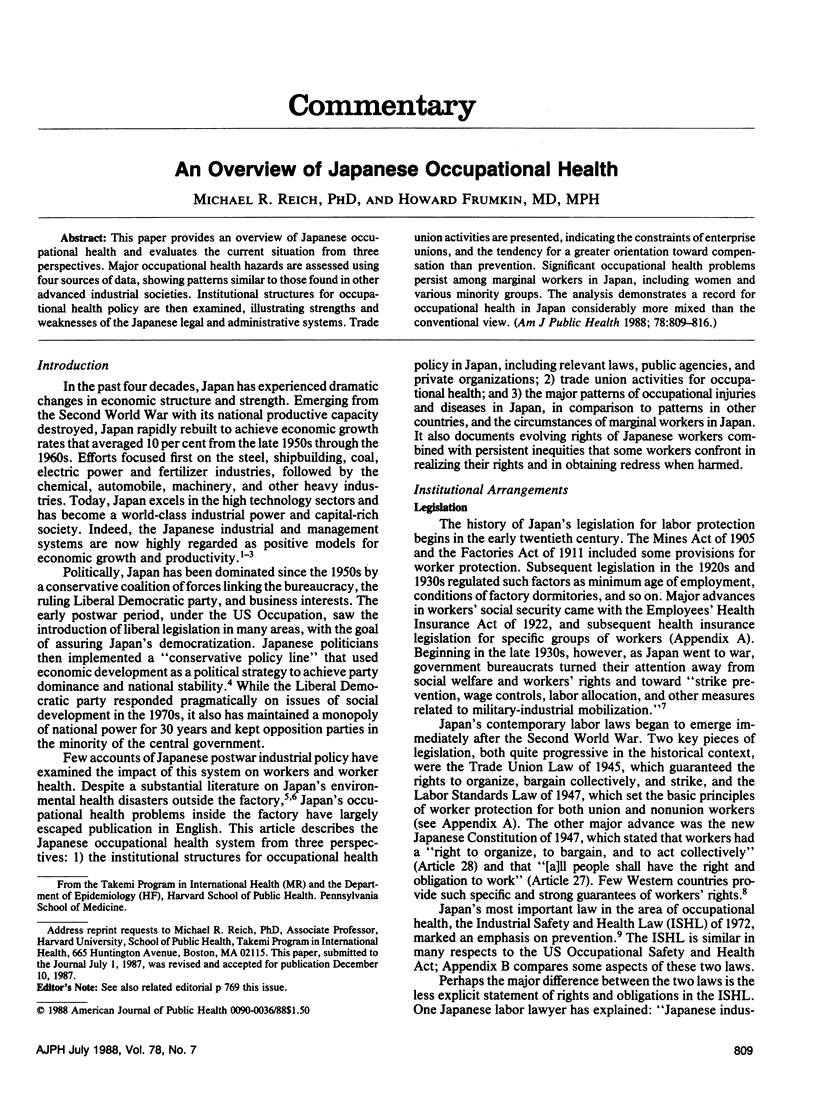
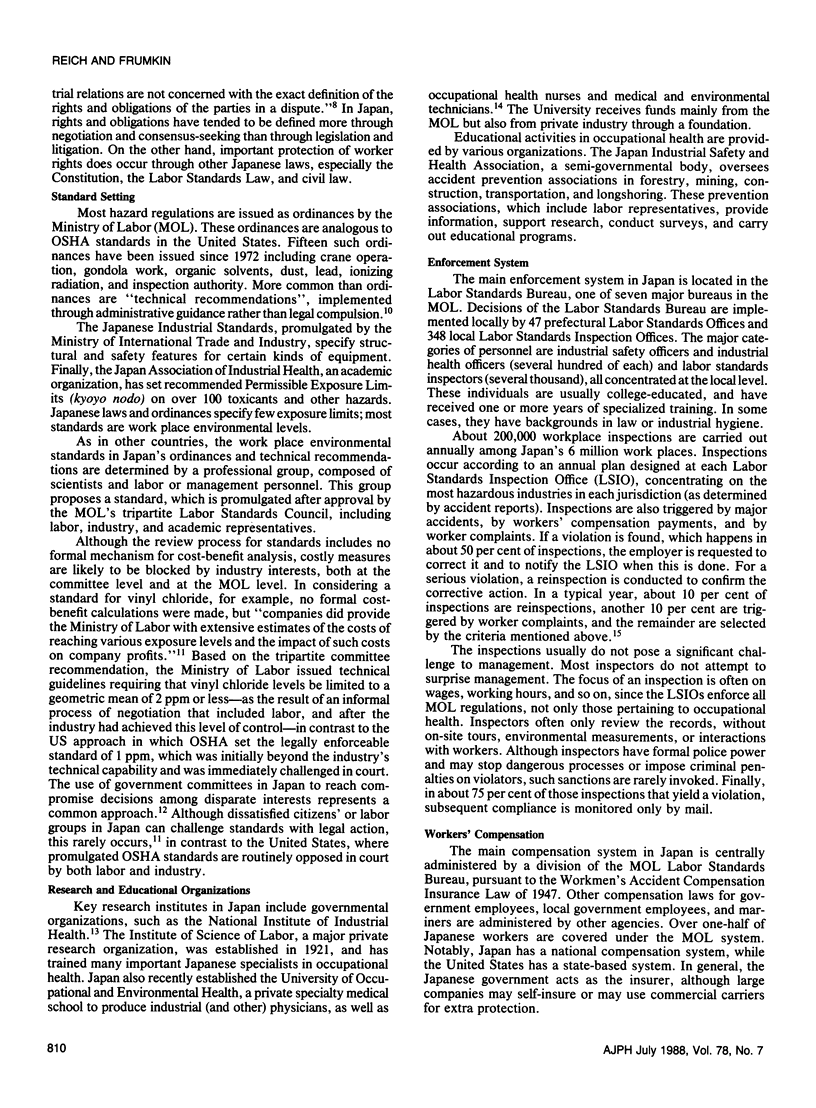
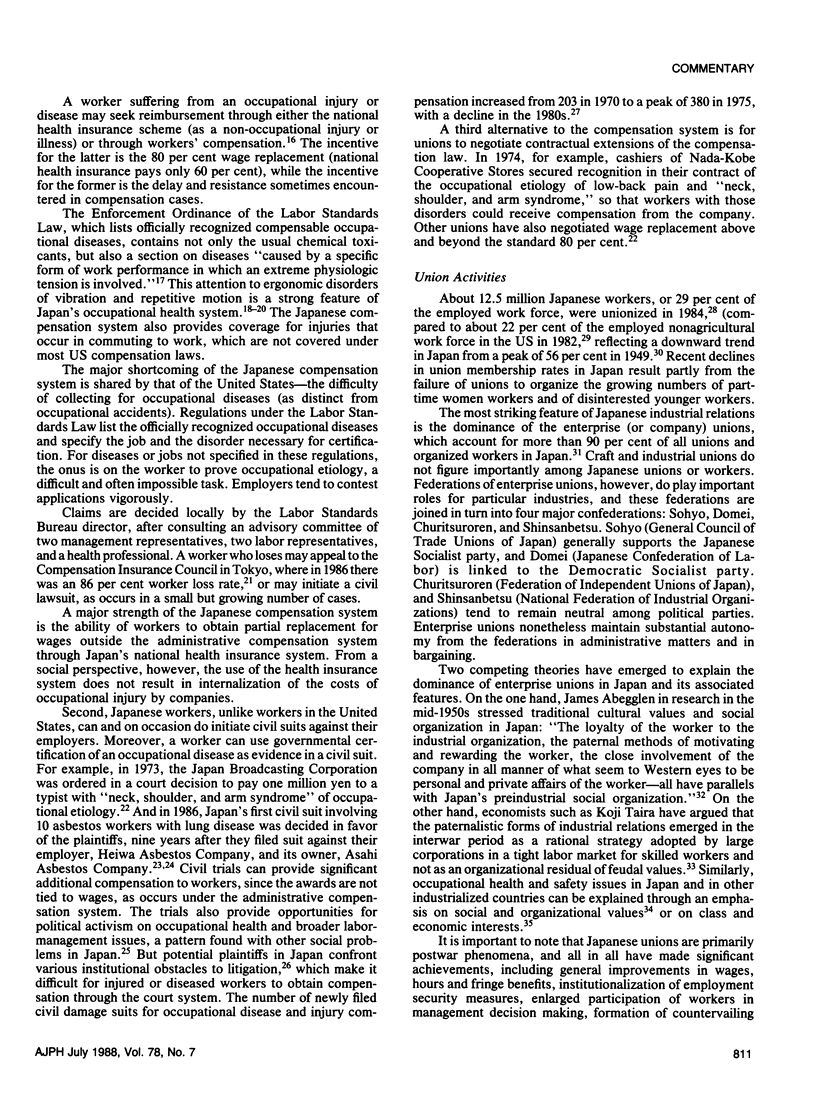
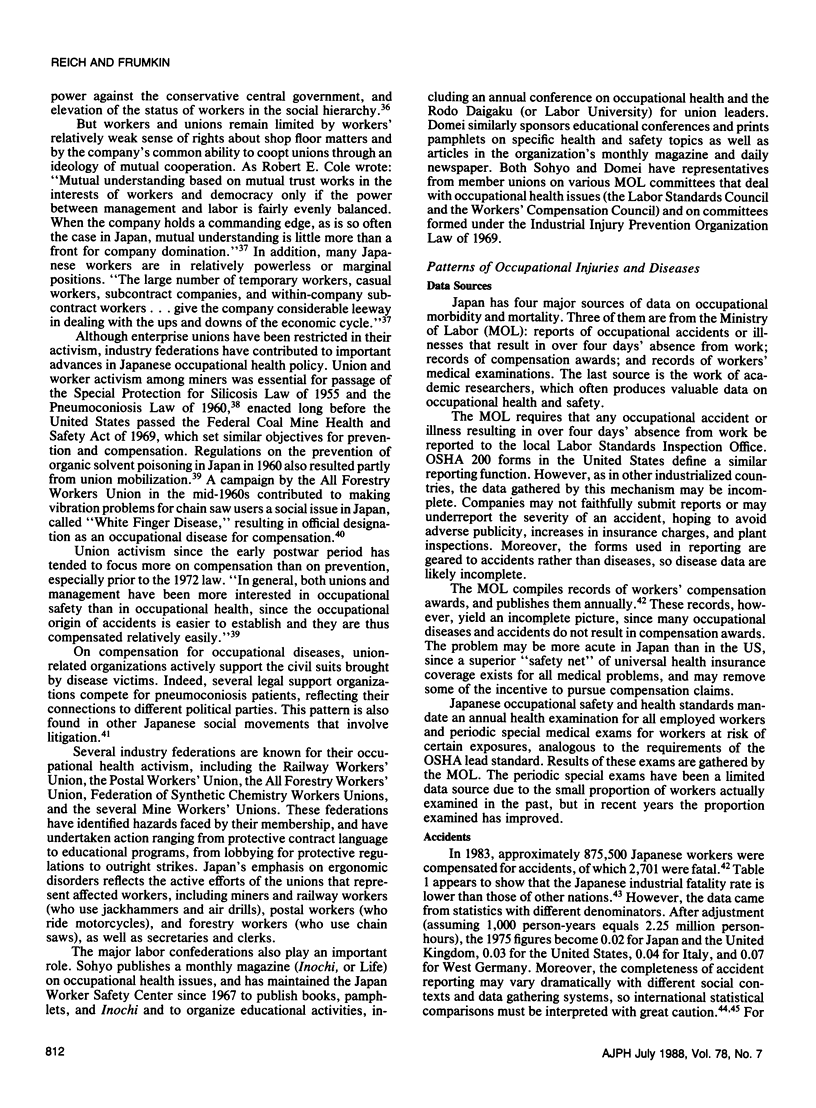
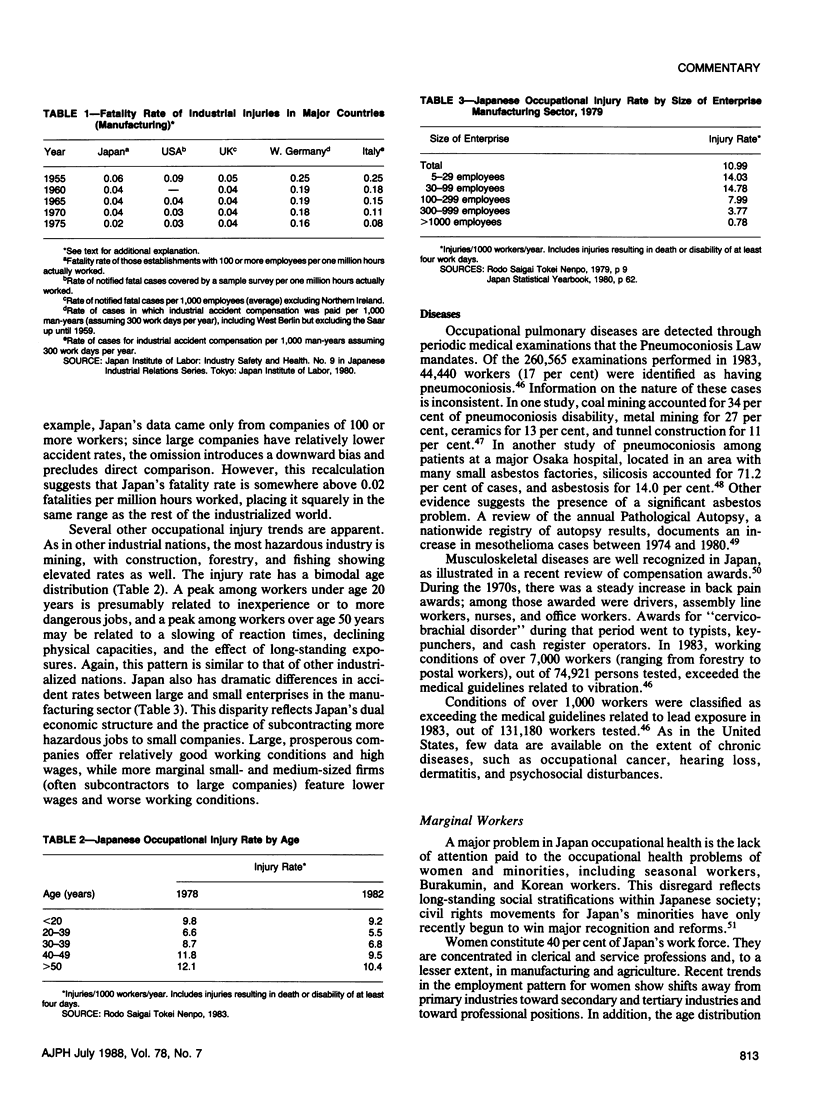
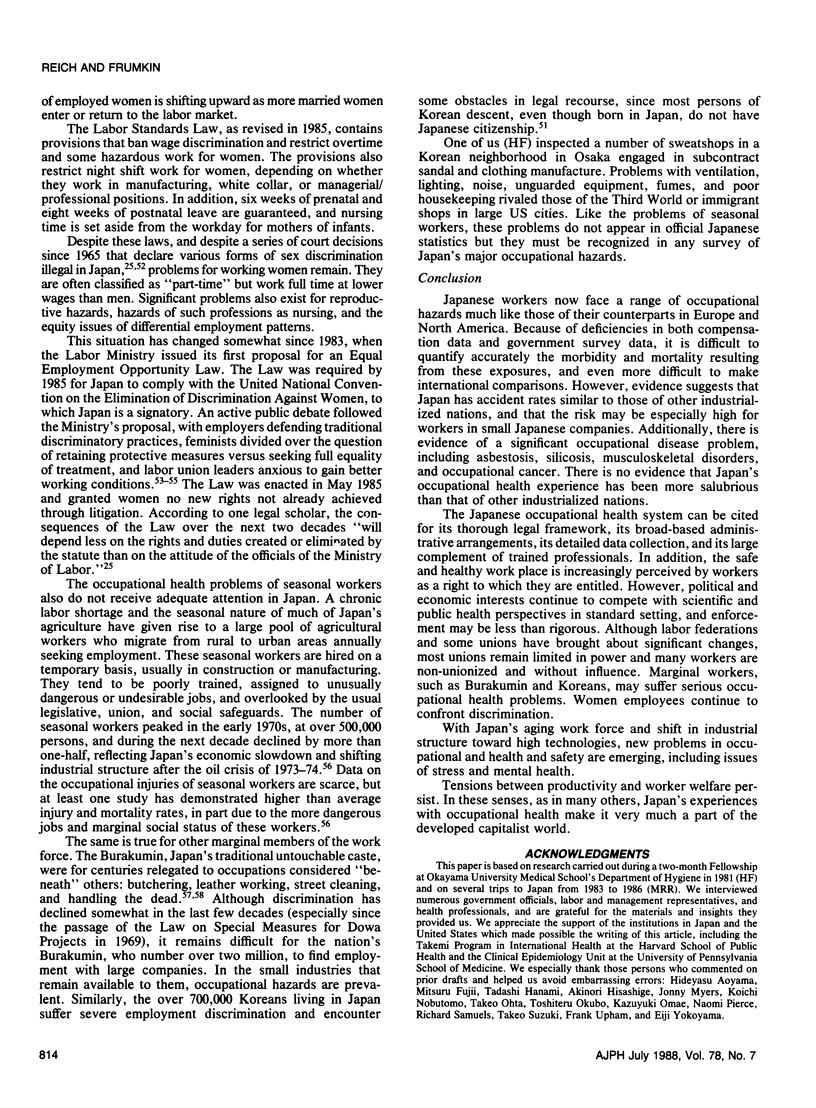
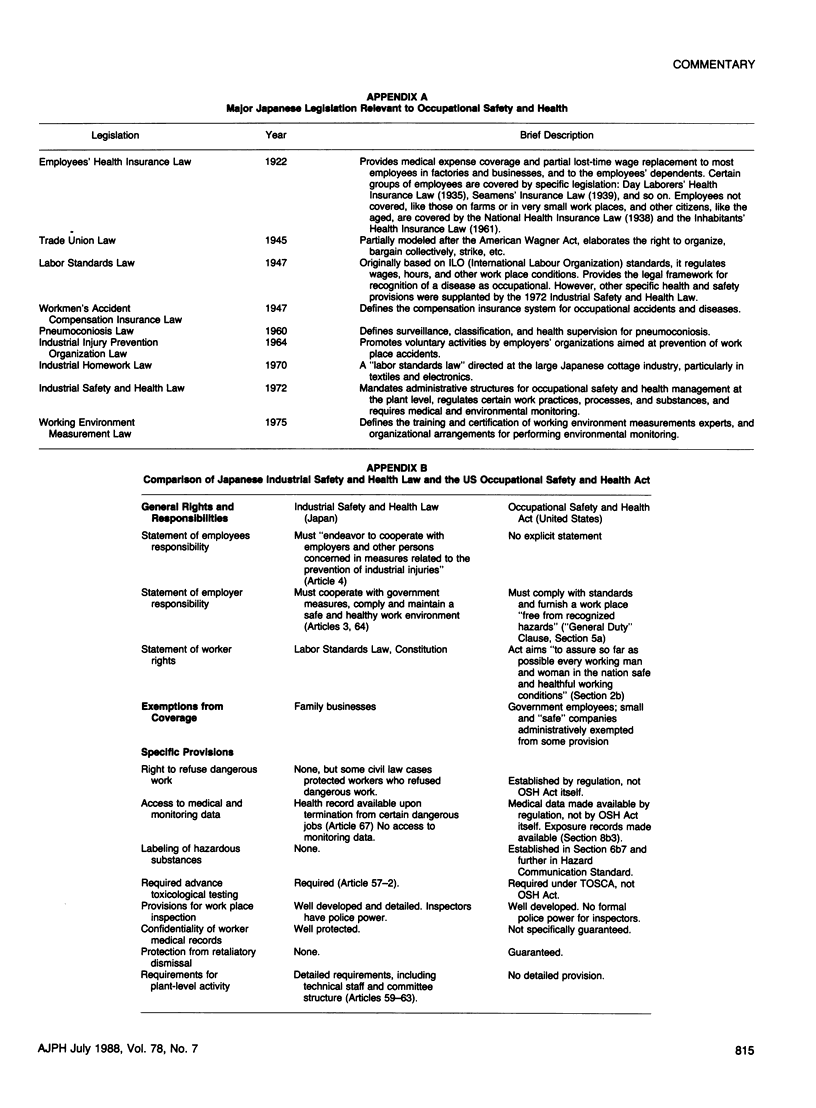
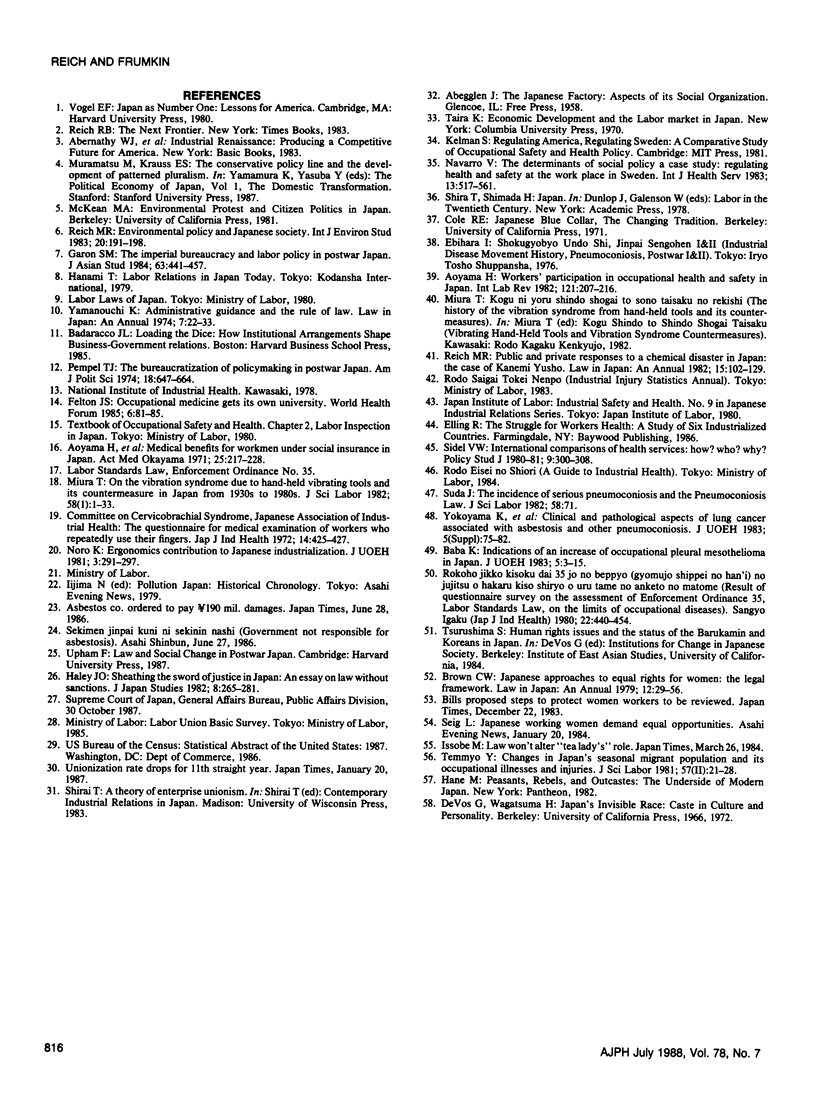
Selected References
These references are in PubMed. This may not be the complete list of references from this article.
- Aoyama H., Goto M., Nagira T., Fujita I., Nakamura M. Medical benefits for workmen under social insurance in Japan. Acta Med Okayama. 1971 Jun;25(3):217–228. [PubMed] [Google Scholar]
- Baba K. Indications of an increase of occupational pleural mesothelioma in Japan. J UOEH. 1983 Mar 1;5(1):3–15. doi: 10.7888/juoeh.5.3. [DOI] [PubMed] [Google Scholar]
- Navarro V. The determinants of social policy. A case study: regulating health and safety at the workplace in Sweden. Int J Health Serv. 1983;13(4):517–561. doi: 10.2190/W9H7-5C52-UKKB-PNJW. [DOI] [PubMed] [Google Scholar]
- Yokoyama K., Morinaga K., Yamamoto S., Sera Y. Clinical and pathological aspects of lung cancer associated with asbestosis and other pneumoconiosis. J UOEH. 1983 Mar 20;5 (Suppl):75–82. [PubMed] [Google Scholar]


